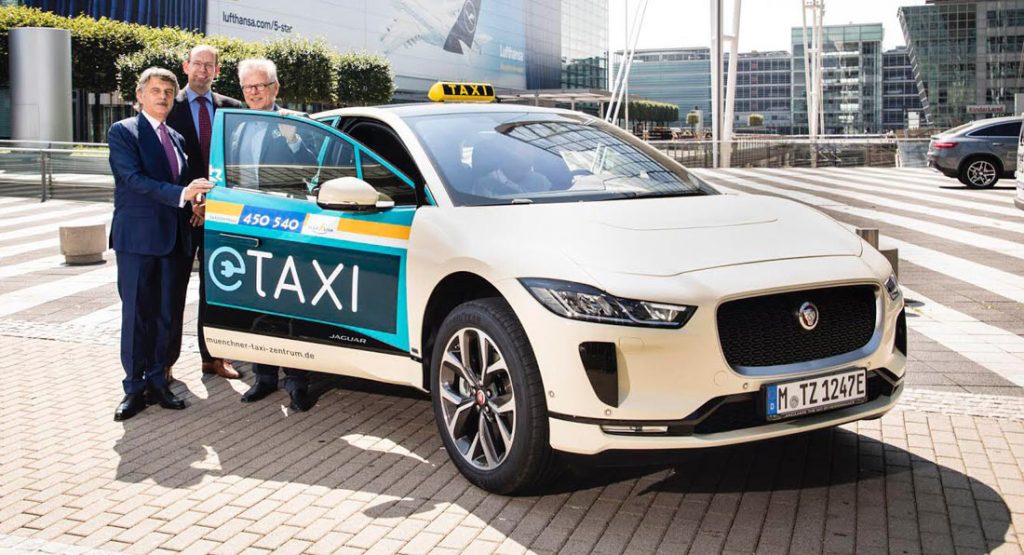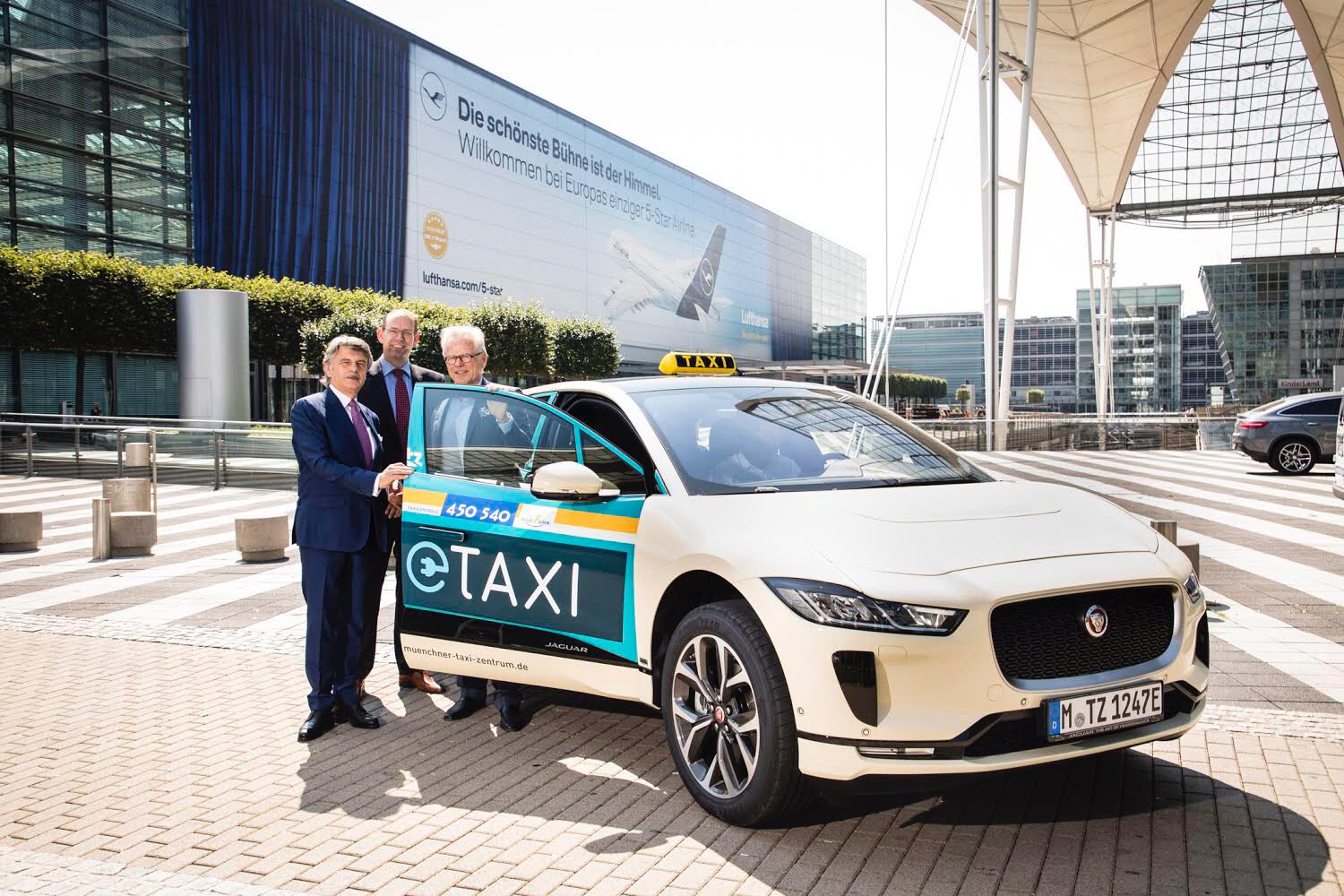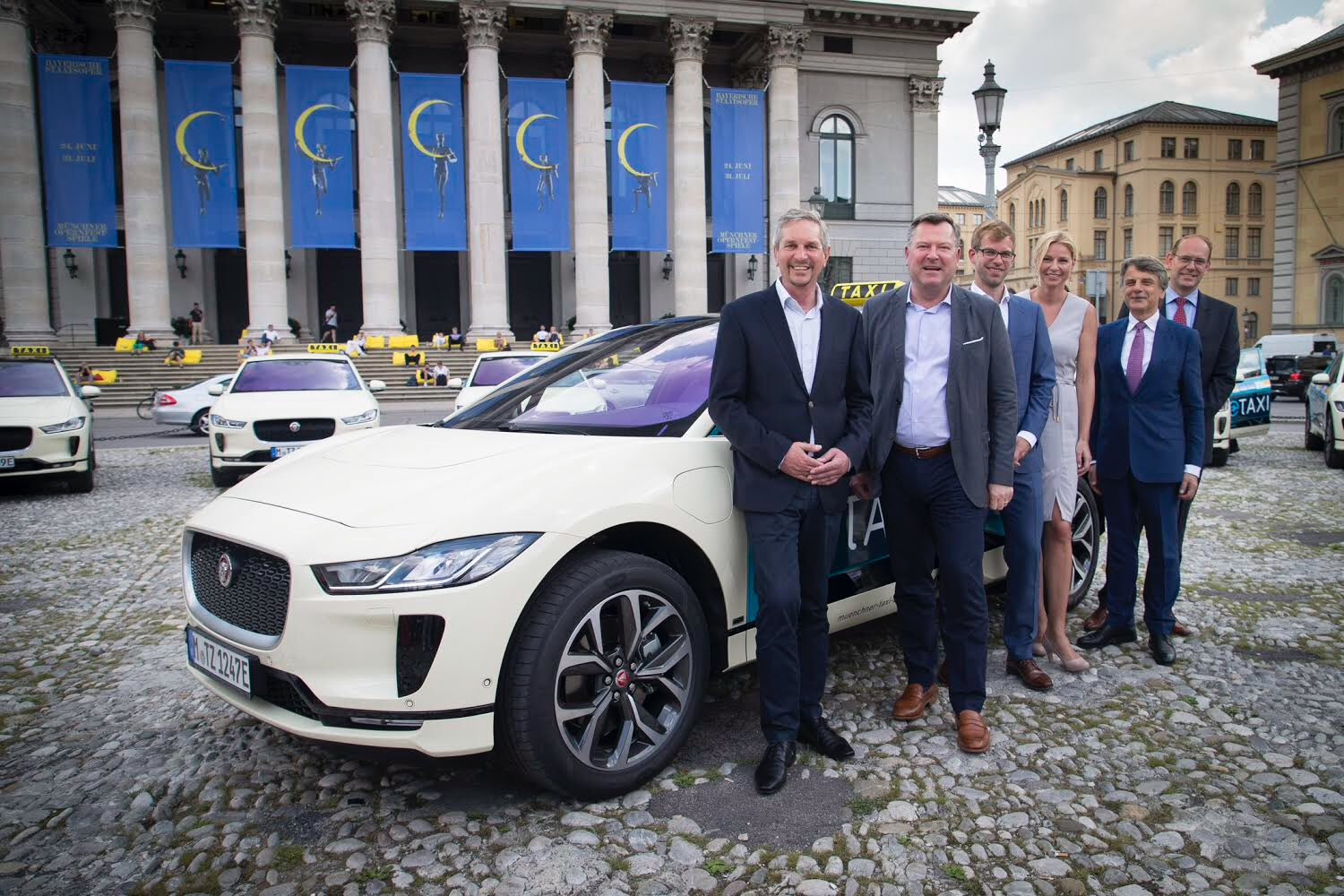Jaguar wants to make a significant impact in Germany’s massive taxi market – and plans to do so by using the all-electric I-Pace SUV.
Late last month, the British marque delivered 10 examples of the I-Pace to the biggest taxi operator in Munich. More than 60 per cent of Germany’s licensed cabs are Mercedes-Benz models and Jaguar believes the country’s increased adoption of electric vehicles will allow it to steal business away from Mercedes and other taxi manufacturers.
Breaking into the market won’t be easy for Jaguar. The Mercedes-Benz E-Class, a particularly popular taxi in Germany, costs half as much as an I-Pace. Consequently, Jaguar will rely on subsidies and lower running costs to convince taxi drivers to make the switch.
The city of Munich has also confirmed its part in contributing to the transition and adoption of electric taxis. As such, the city will contribute to rides and pay 20 cents per kilometer traveled. Having more electric taxis on the city’s streets will also help to reduce air pollution, something major German cities are very eager to do.
“We want to invite people in Munich to drive electric, but also drive Jaguar. One of the reasons we wanted to be here was the mixed traffic – you’ve got the city traffic, on the other hand you’ve got the autobahn to the airport,” Jag’s chief executive Ralf Speth said.
Germany’s current charging infrastructure means it takes roughly 10 hours to charge an I-Pace to 80 per cent of its capacity, an inconvenience that could prove too much for some drivers.









